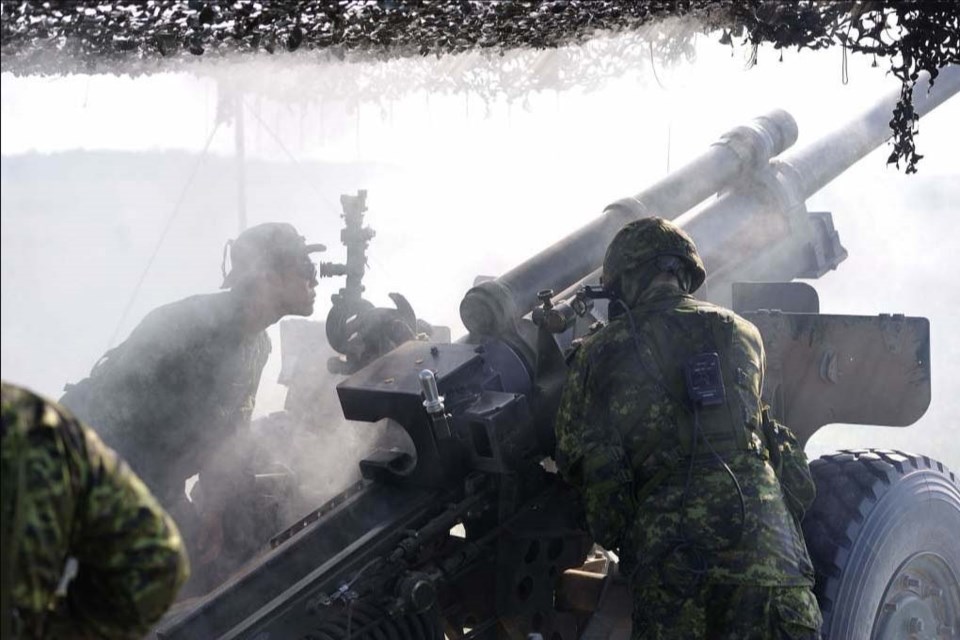Ukraine had had a challenging few months in its war against Russian invaders.
Due at least in part to the (perhaps temporary) halt in American military aid, Ukraine is short of soldiers, short of shells, and enduring Russian attacks on civilian power infrastructure.
Given that the momentum of the conflict, at least for now, is not clearly in Ukraine's favour, a question has arisen in Europe, most urgently, in countries nearest Russia: if the worst happens, are we next?
"We should make no mistake: Today, Ukraine is under attack — tomorrow, it may be some other part of Europe," the foreign ministers of France, Germany and Poland wrote this week. "And Russia will not cease its aggressive and imperialist politics for the foreseeable future."
NATO countries should commit to a minimum standard of 2 per cent of GDP to defence, they wrote. (Poland, which has both a painful history and a long border with Russia, has committed to spending over 4 per cent of GDP on defence.)
Canada, which hasn't had a large military by international standards since the late 1960s, spends just 1.29 per cent of GDP on defence. (In the early Cold War period, it was as high as 7.6 per cent.)
In recent weeks, we've asked how you would feel about funding rearmament, acknowledging that that may mean less in the way of resources for other public-sector priorities. Almost three-quarters of you were in favour:
Men were more in favour than women (though a clear majority of women were still in favour):
There is a clear generational difference:
And a not-unsurprising difference by political party:
It's worth noting, though, that every group polled shows some level of majority support.
Looking at the two questions we use to look at a traditionalist set of views - retaining the monarchy and the separate school system - I can't say I see a strong relationship:
There is, though, a sharp and clear relationship to views about Ukraine:



